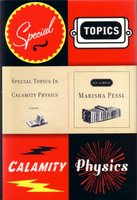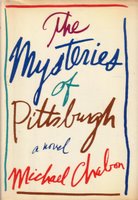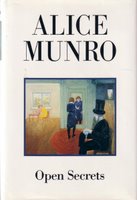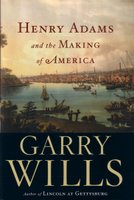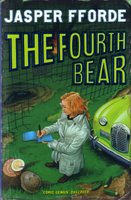109.
Late Wife, Claudia Emerson. Poetry, 12-16, pp. 54
110.
The Lay of the Land, Richard Ford. Fiction, 12-21, pp. 485
111.
Muhammad, Karen Armstrong. Biography, 12-22, pp. 214
112.
Camouflage, Joe Haldeman. Speculative Fiction, 12-23, pp. 296
113.
Ambition & Love, Ward Just. Fiction, 12-28, pp. 277
 A few years ago, shortly after I had distributed my annual book list, a co-worker asked, “Where the poetry?” Good question. I think there was one book of poetry that year amid about 140 books. It’s the norm for me. I like some poems, but I don’t much like poetry. I’m an impatient man and that carries over ino my reading. I’ve never liked to parse lines of verse and obscure words for meaning.
A few years ago, shortly after I had distributed my annual book list, a co-worker asked, “Where the poetry?” Good question. I think there was one book of poetry that year amid about 140 books. It’s the norm for me. I like some poems, but I don’t much like poetry. I’m an impatient man and that carries over ino my reading. I’ve never liked to parse lines of verse and obscure words for meaning.
But when Claudia Emerson won the Pulitzer Prize for her small volume of poetry, Late Wife, I knew it would make its way onto my reading list. Emerson is a professor at Mary Washington College here in Fredericksburg, Virginia, where I live.
Much to my surprise, and pleasure, Emerson is not one of those poets whose verse is cryptic or obscure. Instead, it is as crisp and refreshing as a bright Virginia morning. Her strength is in how she links images to introduce clarity and in her ability to bringing great importance and meaning to the quotidian. Here’s a sample of her work entitled Metaphor:
We didn’t know what woke us – just
cold moving, lighter than our breathing.
The world bound by an icy ligature,
our house was to the bat a warmer
hollowness that now it could not
leave. I screamed for you to do something.
So you killed it with the broom,
cursing, sweeping the air. I wanted
you to do it – until you did.
 The Lay of the Land is Richard Ford’s third book featuring Frank Bascombe. The second book in that series, Independence Day, won Ford the Pulitzer Prize. This novel won’t bring him such accolades. It’s a slog, tiresome and over-written.
The Lay of the Land is Richard Ford’s third book featuring Frank Bascombe. The second book in that series, Independence Day, won Ford the Pulitzer Prize. This novel won’t bring him such accolades. It’s a slog, tiresome and over-written.
The Lay of the Land focuses on three consecutive days in Bascombe’s life in which not much happens and when something finally does happen the events are so preposterous that you can only wonder what Ford was thinking and can only conclude he was desperate to end this ungainly novel.
Most of the book entails Bascombe talking to us; his woes with wives, present and past; woes with his children; his philosophy of life and real estate sales. Given another character it might have added up to something greater, but Frank Bascombe is not someone we want to spend three hours with let alone three days.
Under the theory that there are too many books, too little time, give this one a pass.
 I don’t know of another author that writes of faith and religion with the honesty of Karen Armstrong. Her newest, Muhammad, A Prophet for Our Time, is a timely addition to her exemplary body of work. Muhammad is part of the Eminent Lives series – “brief biographies by distinguished authors on canonical figures.”
I don’t know of another author that writes of faith and religion with the honesty of Karen Armstrong. Her newest, Muhammad, A Prophet for Our Time, is a timely addition to her exemplary body of work. Muhammad is part of the Eminent Lives series – “brief biographies by distinguished authors on canonical figures.”
Armstrong presents a balanced portrait of Muhammad. It is her even-handedness that is her great strength. Although, she does not hesitate to strongly emphasize those points where she believes Islam is most misunderstood – it represented a great advancement for Arab women, who were regarded as property; Muhammad saw a kinship with Jews and Christians and believed that the three faiths should peacefully co-exist in a spirit of brotherhood and mutual respect.
As we struggle today to understand 9-11 and the misguided war in Iraq, Armstrong’s lucid biography of Muhammad provides us with a valuable primer, offering insight into the life of the prophet and the faith thats very name means “surrender.”
 I don’t read much science fiction these days, a few books each year. Joe Haldeman’s Camouflage is one of those books that serves to remind me of my teen-age fascination with this genre and why I continue to read the occasional sci-fi novel now.
I don’t read much science fiction these days, a few books each year. Joe Haldeman’s Camouflage is one of those books that serves to remind me of my teen-age fascination with this genre and why I continue to read the occasional sci-fi novel now.
It begins with the discovery of an artifact in the ocean depths. We soon learn that there is, not one, but two aliens at large on the Earth. One is connected with the artifact, the other is not. As the artifact is recovered and subjected to test after test, we know that inevitably the two aliens will meet. And they do, although the actual meeting is a matter of only pages.
It’s the journey that is important here. Not the journey that leads to a meeting of two aliens, but the journey of one alien to something approaching humanity. As with most science fiction, Camouflage is a hopeful book. It’s also a fun read.
 Ward Just’s Ambition & Love might be better titled Ambition or Love for Just seems to suggest that you can’t have both. This is the story of an American artist who flees Chicago for California and California for Paris. She is a dedicated artist who achieves a small level of recognition, but who lives a life greatly circumscribed by her passion for her art; all that begins to change when love blooms between her and a pianist who lives in the same apartment building.
Ward Just’s Ambition & Love might be better titled Ambition or Love for Just seems to suggest that you can’t have both. This is the story of an American artist who flees Chicago for California and California for Paris. She is a dedicated artist who achieves a small level of recognition, but who lives a life greatly circumscribed by her passion for her art; all that begins to change when love blooms between her and a pianist who lives in the same apartment building.
This is a minor novel by Just. Still interesting, because he is an interesting writer, but lacking the power of his “political” novels such as Echo House and A Dangerous Friend.
 My final book of 2006.
My final book of 2006. 























